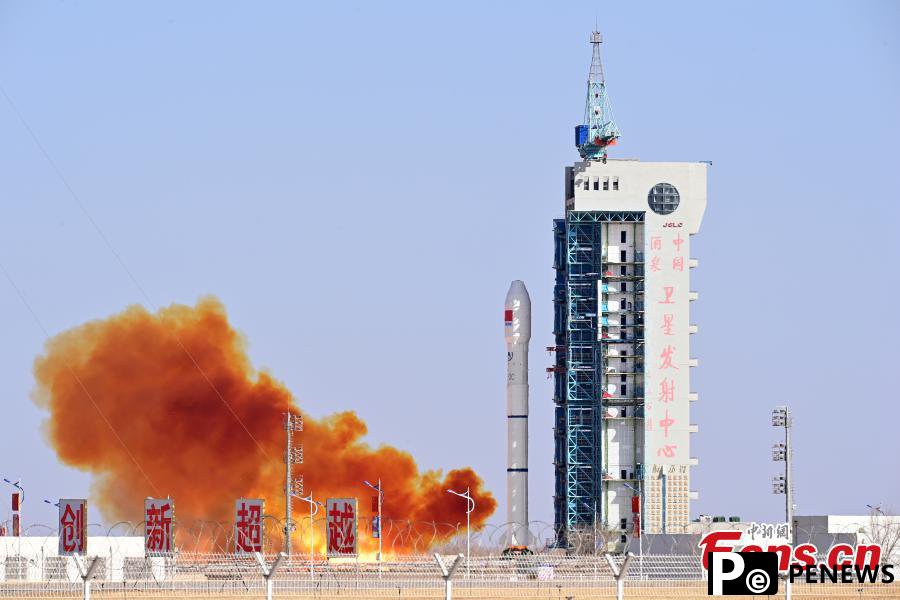Home>>
Things to watch at China's 2025 "two sessions"(Xinhua) 10:52, March 01, 2025
BEIJING, March 1 (Xinhua) -- China's national "two sessions," a key political event shaping the country's policy direction, are set to convene in Beijing next week against the backdrop of a complex and challenging domestic and global environment.
The annual session of the top political advisory body, the Chinese People's Political Consultative Conference National Committee, will commence on Tuesday. The session of the top legislature, the National People's Congress (NPC), will open on Wednesday.
The Chinese premier, top legislator, top political advisor, chief justice, and top procurator will present work reports. Lawmakers will review the government's annual budget and development plan. They will deliberate an amendment to the law on deputies to the NPC and local people's congresses.
On the sidelines of the event, ministers from various government departments will engage with the public through interviews and press conferences, clarifying policies and responding to pressing concerns.
The "two sessions" serve as a critical window to observe China's development plan for the coming year. Decisions and policy announcements made here will not only affect the lives of 1.4 billion Chinese but also have an impact outside the country's borders.
So, what can be expected from this year's "two sessions"?
GROWTH TARGET FOR 2025
Typically, the GDP growth target set in the government work report is one of the most closely watched figures. As China's economy shifts toward high-quality development, GDP is not the sole measure of the economy. But it remains an important indicator.
In 2024, China achieved its growth target of around 5 percent, thanks in large part to a series of significant macroeconomic measures introduced to offset economic downturn pressure.
GDP growth serves as a cornerstone metric with profound and wide-ranging significance. Despite the challenges China's economy has faced in recent years, it is projected to contribute about 30 percent of global economic growth in 2024, making it the largest source of growth for the world economy.
INCREMENTAL POLICIES
To achieve its growth target, China will roll out more targeted policies to stimulate economic activity. The government work report is expected to announce policy measures to ensure the goal is met.
China has already signaled a shift in its macroeconomic stance. At the Central Economic Work Conference last December, policymakers pledged to roll out more proactive macro policies in 2025. Notably, they decided to adopt a "moderately loose" monetary policy, marking a significant departure from the "prudent" approach over the past 14 years.
The meeting outlined nine key priorities, with boosting consumption at the forefront. This reflects China's emphasis on domestic demand as a top economic priority. In 2025, large-scale equipment upgrades and consumer goods trade-in programs are expected to be promoted with greater intensity and in a broader scope.
According to Finance Minister Lan Fo'an, China in 2025 will actively use the room for a higher deficit, increase the issuance of local government special-purpose bonds, continue to issue ultra-long special treasury bonds, and increase transfer payments from the central government to local governments. The specifics of these plans will also be a key focus of this year's "two sessions."
INTERACTIONS BETWEEN LEADERS, LEGISLATORS, ADVISORS
During the "two sessions," Chinese leaders, who are NPC deputies themselves, will interact with their fellow lawmakers at group deliberations. They will also interact with political advisors to discuss hotspot topics that matter most to state governance.
These interactions serve as a window for observing how the central leadership stays informed about grassroots realities. This is a defining feature of Chinese democracy, often described in contemporary discourse as whole-process people's democracy.
In recent years, President Xi Jinping, a deputy of Jiangsu Province's delegation to the 14th NPC, has typically participated in the delegation's deliberations.
Xi, also general secretary of the Communist Party of China Central Committee and chairman of the Central Military Commission, also attended the meetings of the NPC delegation of the armed forces and joined group discussions of political advisors from various sectors.
During these interactions, Xi emphasized key priorities such as supporting the growth of the private sector and private enterprises, accelerating digital economy development, and advancing high-level opening-up -- all crucial to China's economic and social progress.
FOREIGN POLICY
The "two sessions" also shed light on China's foreign policy, as the foreign minister typically holds a press conference on the sidelines of the meetings.
Last year, Foreign Minister Wang Yi answered 21 questions during a 90-minute press conference, with journalists from across the world participating.







